|
|

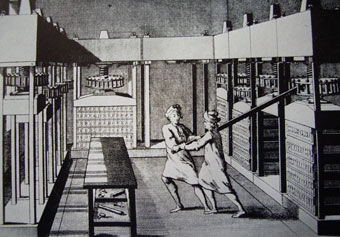
Pressing tobacco, c 1750.
Tobacco first appeared in England in 1565. It started being grown as a commercial crop in the British colonies of the Caribbean and North America in the early seventeenth century.
By the 1670s about half of Bristol's ships were engaged in the tobacco
trade and by the mid-eighteenth century, a number of tobacconist
shops had been set up in the city, concentrated around the Castle
Street area. In 1786, Bristol tobacconist Samuel Watkins took on
a new partner, Henry Overton Wills (1761-1826), who had recently
arrived from his hometown of Salisbury. This was the foundation for
the Wills tobacco manufacturing company.
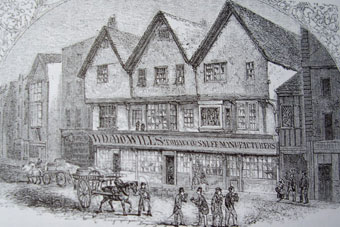
The W D and H O Wills' premises at Redcliff Street, first occupied in 1791.
Wills was considered to be one of the best employers in the city, providing continuing employment during periodic downturns in trade, paid holidays, social facilities, a reasonable wage, pension schemes, Christmas bonuses, a factory canteen, apprenticeships and other benefits well ahead of other companies. Early conditions of employment included being a member of a Sunday School (the Wills had strong links with the nonconformist Penn Street Tabernacle) and among the recruitment procedures for women was a sewing test to demonstrate dexterity. The Wills family were generous benefactors to many Bristol institutions including the University and the City Museum and Art Gallery.
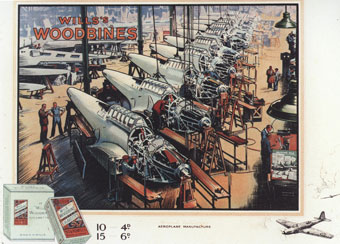
Wills advertising material (Bristol's Museums, Galleries and Archives).
Wills first introduced hand-rolled cigarettes in 1860 and began marketing its own brand of cigarette – 'Bristol' – in 1871. In 1883, Harry Wills (1856-1922), the grandson of the founder, acquired the British patent for the American Bonsak machine which was capable of producing 1,500 cigarettes in eight minutes. This slashed production costs and led to the firm's massive expansion as well as to the introduction of 'Wild Woodbines', its most famous brand, which retailed at five for a penny.
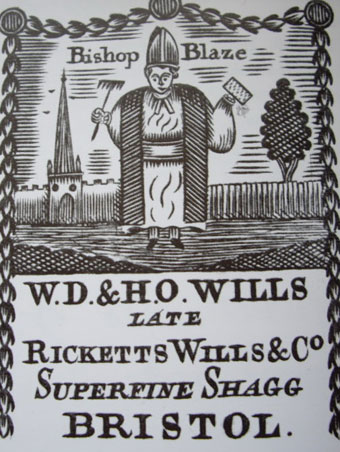
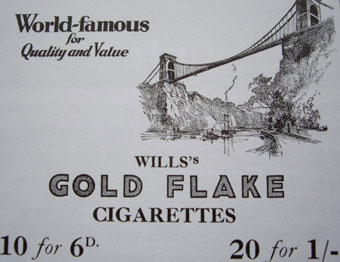
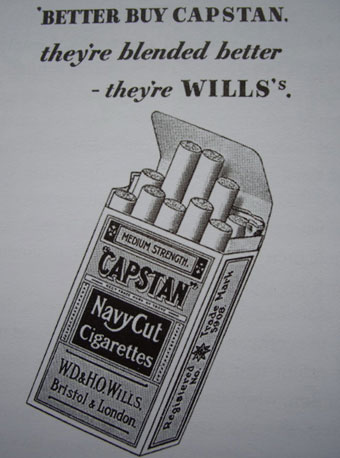
Wills advertising material. (Above and below).
In 1901, Wills joined 12 other family-run tobacco manufacturers to form Imperial Tobacco Ltd. This was in response to competition from the American Tobacco Company which was hoping to extend its business in to Britain. By the 1960s Imperial had diversified into other products, acquiring the HP Sauce Group, Golden Wonder and Courage Ltd, among other companies. The Hanson Trust took over the Imperial Group in 1981. Most of Wills' premises in Bedminster were demolished in the late 1980s and the massive Hartcliffe factory, which had closed in 1991, was demolished in 1999.
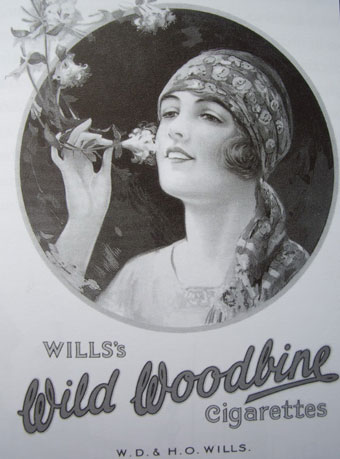
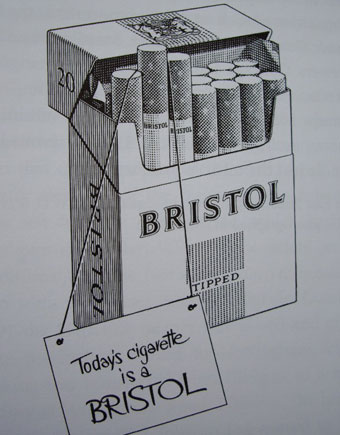
|
|
|
|